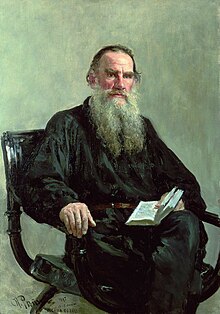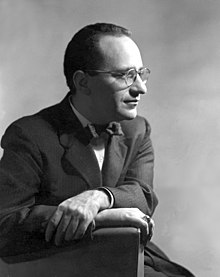Refusal


Refusal is an act of repudiation, abnegation, or declination.
B
[edit]- REFUSAL, n. Denial of something desired; as an elderly maiden's hand in marriage, to a rich and handsome suitor; a valuable franchise to a rich corporation, by an alderman; absolution to an impenitent king, by a priest, and so forth. Refusals are graded in a descending scale of finality thus: the refusal absolute, the refusal condition, the refusal tentative and the refusal feminine. The last is called by some casuists the refusal assentive.
- Ambrose Bierce, The Devil's Dictionary (1911).
C
[edit]- Every day I add to the list of things I refuse to discuss. The wiser the man, the longer the list.
- Nicolas Chamfort, Reflections, D. Parmée, trans. (London: 2003) #342
J
[edit]- Fallen, fallen is Babylon the great!
- She has become a dwelling place for demons,
- a haunt for every unclean spirit. ...
- Come out of her, my people,
- lest you take part in her sins,
- lest you share in her plagues;
- for her sins are heaped high as heaven,
- and God has remembered her iniquities.
- John of Patmos, Revelation 18:2-5
- The poor were wise, who, by the rich oppressed,
- Withdrew, and sought a secret place of rest.
- The “Secret place of rest” is Mons Sacer, where the plebeians hid after seceding from the Roman Empire in 495 BC
L
[edit]- We refuse to have our conscience bound by any work or law. ... Our stubbornness is right, because we want to preserve the liberty which we have in Christ. Only by preserving our liberty shall we be able to retain the truth of the Gospel inviolate.
- Martin Luther, Commentary on the Epistle to the Galatians (1535), Chapter 2
M
[edit]- Whether ritualized or not, art contains the rationality of negation. In its advanced positions, it is the Great Refusal—the protest against that which is. The modes in which man and things are made to appear, to sing and sound and speak, are modes of refuting, breaking, and recreating their factual existence. But these modes of negation pay tribute to the antagonistic society to which they are linked. Separated from the sphere of labor where society reproduces itself and its misery, the world of art which they create remains, with all its truth, a privilege and an illusion.
- Herbert Marcuse, One Dimensional Man (1964), p. 63
- For La Boétie as for Machiavelli, authority can only be grounded on acceptance by the subjects: except that the one teaches the prince how to compel their acquiescence, while the other reveals to the people the power that would lie in their refusal.
- Pierre Mesnard, L’Essor de la philosophie politique au XVIe siècle (1936), p. 400
- In the year of Christ 1571, at the age of thirty-eight, on the last day of February, anniversary of his birth, Michel de Montaigne, long weary of the servitude of the court and of public employments, while still entire, retired to the bosom of the learned Virgins, where in calm and freedom from all cares he will spend what little remains of his life now more than half run out. If the fates permit, he will complete this abode, this sweet ancestral retreat; and he has consecrated it to his freedom, tranquility, and leisure.
- Michel de Montaigne, Latin inscription painted on the wall of the side-chamber of Montaigne’s library
N
[edit]- We are responsible to ourselves for our own existence; consequently we want to be the true helmsmen of this existence and refuse to allow our existence to resemble a mindless act of chance.
- Friedrich Nietzsche, Untimely Meditations, “Schopenhauer as educator,” § 3.1, R. Hollingdale, trans. (1983), p. 128
P
[edit]- Philosophers ... have tasted how sweet and blessed a possession philosophy is, and have also seen and been satisfied of the madness of the multitude, and known that there is no one who ever acts honestly in the administration of States, nor any helper who will save any one who maintains the cause of the just. Such a savior would be like a man who has fallen among wild beasts—unable to join in the wickedness of his fellows, neither would he be able alone to resist all their fierce natures, and therefore he would be of no use to the State or to his friends, and would have to throw away his life before he had done any good to himself or others. And he reflects upon all this, and holds his peace, and does his own business. He is like one who retires under the shelter of a wall in the storm of dust and sleet which the driving wind hurries along; and when he sees the rest of mankind full of wickedness, he is content if only he can live his own life and be pure from evil or unrighteousness, and depart in peace and good will, with bright hopes.
- Plato, The Republic, 496d
R
[edit]- I shall love and respect, but neither command nor obey.
- Ayn Rand, Anthem (1938)
- The fundamental political question is why do people obey a government. The answer is that they tend to enslave themselves, to let themselves be governed by tyrants. Freedom from servitude comes not from violent action, but from the refusal to serve. Tyrants fall when the people withdraw their support.
- Murray Rothbard, introduction to Étienne de La Boétie's Politics of Obedience: The Discourse of Voluntary Servitude (1975), p. 39
T
[edit]- Regnare nolo: ditescere non libet: prae turam recuso, scortationem odi: navigare ob insatiabilem avaritiam non cupio: de coronis consequendis non dimico: liber sum ab insana gloria cupiditate: mortem contemno: guovis morbi genere superior sum: maror animum non peredit.
- I do not wish to be a king; I am not anxious to be rich; I decline military command; I detest fornication; I am not impelled by an insatiable love of gain to go to sea; I do not contend for chaplets; I am free from a mad thirst for fame; I despise death; I am superior to every kind of disease; grief does not consume my soul.
- Tatian, Address to the Greeks, Chapter XI, as translated by J. E. Ryland
- Do not do what you hate, for all things are plain in the sight of heaven.
- Gospel of Thomas, verse 6
- People try to do all sorts of clever and difficult things to improve life instead of doing the simplest, easiest thing—refusing to participate in activities that make life bad.
- Leo Tolstoy, Path of Life, M. Cote, trans. (2002), p. 210
W
[edit]- Thoreau's disobedience is disobedience as refusal. I won't live in your world. I will live as if your world has ended, as indeed it deserves to end. I will live as if my gesture of refusing your world has destroyed it.
- Curtis White, “The spirit of disobedience: An invitation to resistance,” Harper’s, April 2006, p. 36
- Although the '60s counterculture has been much maligned and discredited, it attempted to provide what we still desperately need: a spirited culture of refusal, a counter-life to the reigning corporate culture of death. We don't need to return to that counterculture, but we do need to take up its challenge again. If the work we do produces mostly bad, ugly, and destructive things, those things in turn will tend to re-create us in their image. We need to turn to good, useful, and beautiful work. We need to ask, as Thoreau and Ruskin did, What are the life-giving things? Such important questions are answered for us in the present by the corporate state, while we are left with the most trivial decisions: what programs to watch on TV and what model car to buy.
- Curtis White, “The spirit of disobedience: An invitation to resistance,” Harper’s, April 2006, p. 40
X
[edit]- Those who take money are bound to carry out the work for which they get a fee, while I, because I refuse to take it, am not obliged to talk with anyone against my will.
- Xenophon, Socrates in Memorabilia, 1.6.1
"There is, as I hold, a middle path in which I am fain to walk. That way leads neither through rule nor slavery, but through liberty, which is the royal road to happiness.”
“Ah,” said Socrates, “if only that path can avoid the world as well as rule and slavery, there may be something in what you say. But, since you are in the world, if you intend neither to rule nor to be ruled, and do not choose to truckle to the rulers—I think you must see that the stronger have a way of making the weaker rue their lot both in public and in private life, and treating them like slaves." ...
“Yes, but my plan for avoiding such treatment is this. I do not shut myself up in the four corners of a community, but am a stranger in every land.”
- Xenophon, Aristippus and Socrates in Memorabilia, 2.1.8

